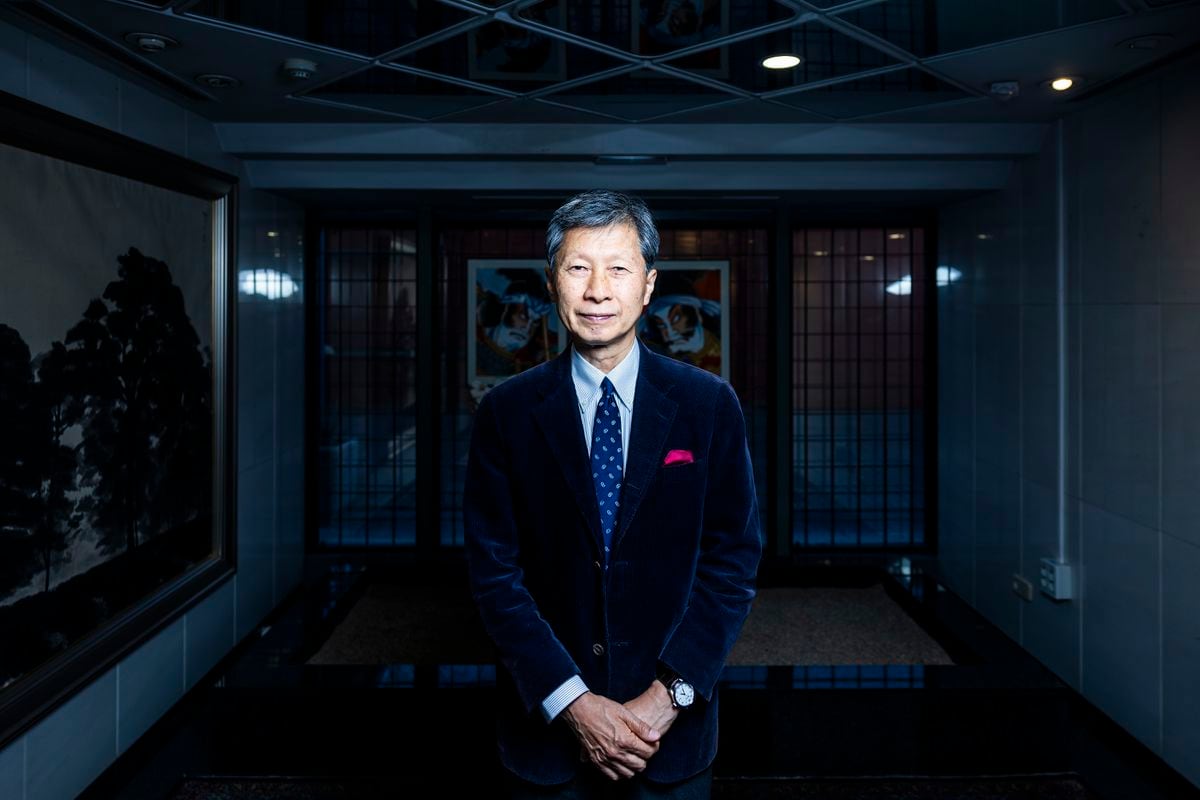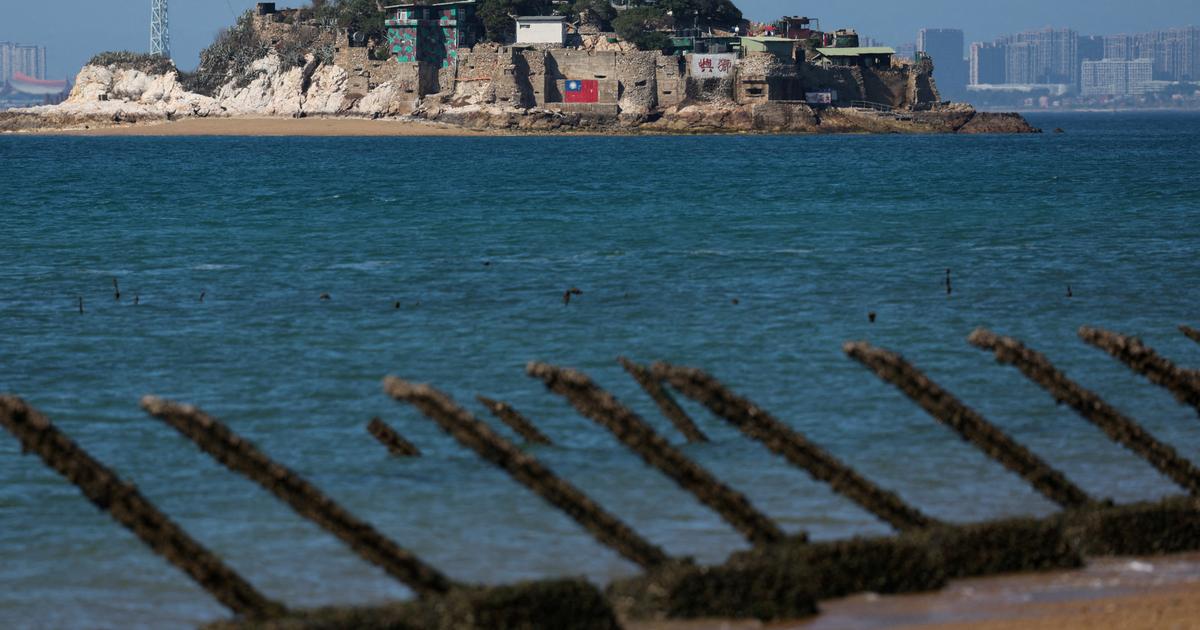Change of direction also because of the Taiwan crisis: China is preparing for an economic war with the West
Created: 08/19/2022, 15:47
By: Sven Hauberg
The best microchips in the world currently come from the Taiwanese manufacturer TSMC.
© Taiwan Semiconductor Manufacturing Co.,Ltd.
China wants to become more independent from the West, whatever the cost.
This also has something to do with the Taiwan conflict – but not only.
Munich/Beijing – Nothing works without them: The Taiwan Semiconductor Manufacturing Company, TSMC for short, is the world's largest contract manufacturer for particularly powerful microchips.
Without the semiconductors from Taiwan, the world economy would stutter, Audi would no longer be able to build cars and Apple no more smartphones.
Companies in China are also dependent on the tiny components.
For example Foxconn, which has its headquarters in Taipei but employs more people on the Chinese mainland than any other private company.
If there were no chips from Taiwan, then in Shenzhen, for example, where Foxconn has the iPhone screwed together for Apple, the assembly lines would quickly come to a standstill.
This is also known in Beijing.
As a result, some experts say it is unlikely that China will soon launch an attack on Taiwan, which the country's communist leadership regards as a "breakaway province."
Because an invasion could damage the facilities of TSMC and other chip manufacturers or at least disrupt production significantly.
How sensitive semiconductor production is was demonstrated last year at Infineon's Dresden plant, where a power outage of just 20 minutes brought production to a standstill for several weeks.
China is therefore trying to build its own chip industry that can compete with the world market leaders from Taiwan.
By the year 2025, 70 percent of the demand for semiconductors is to be produced domestically, according to the goal of the government in Beijing, which spends many billions of dollars on this every year.
The Chinese manufacturer SMIC recently reported that it had caught up on a development deficit of several years;
nevertheless, only just under 17 percent of the chips that are installed in China were recently manufactured in the People's Republic.
In addition, these are not the particularly powerful semiconductors of the latest generation.
And there is headwind from Taiwan: the government in Taipei prohibits its semiconductor companies from setting up new production facilities in China in order to prevent a brain drain of cutting-edge technology.
"China sees itself competing with the US for world supremacy"
Similar debates are currently being held in Beijing as in Berlin, Washington or Brussels – only under completely different circumstances.
In Europe, it was the Ukraine war that made it painfully clear how dependent we were on authoritarian regimes.
Should China one day actually attack Taiwan, it would be faced with a dilemma similar to the one it is now dealing with with Russia: economic decoupling would be extremely expensive, extremely difficult and probably only possible with major losses in prosperity.
China and Taiwan: That's what the conflict is about
View photo gallery
Beijing is about something else.
"China wants to change its development model, away from exports towards growth driven by innovation and domestic consumption," explains Alexander Brown from the China think tank Merics in an interview with
Merkur.de
from
IPPEN.MEDIA.
“China's leadership fears that the country could be cut off at any time from international flows of goods and foreign technology.
This would have a major impact on the country's economic development.
That's why we want to become more independent from other countries."
Above all, it was the trade war that Donald Trump launched against China that led to a rethink in Beijing.
The Taiwan crisis has once again aggravated the international situation.
Beijing fears Western sanctions if it attacks the island, Brown says.
“China's strategy to become more independent from other countries is more fundamental: Beijing sees China and the US in competition for world supremacy and believes that the US wants to curb China's rise.
Even if the Taiwan issue did not exist, China would pursue the same goals.”
also read
Rising energy prices: trade associations call for relief
Gas levy: Wüst complains about the bureaucracy
About IPPEN.MEDIA
The
IPPEN.MEDIA
network is one of the largest online publishers in Germany.
At the locations in Berlin, Hamburg/Bremen, Munich, Frankfurt, Cologne, Stuttgart and Vienna, journalists from our central editorial office research and publish for more than 50 news offers.
These include brands such as Merkur.de, FR.de and BuzzFeed Germany.
Our news, interviews, analyzes and comments reach more than 5 million people in Germany every day.
The corona pandemic is slowing down China's plans - but not bringing them to a standstill
China is celebrating its first successes on the way there, for example in the field of e-mobility, where German manufacturers have long lagged behind companies from China in terms of sales figures.
Experts also see the country ahead when it comes to green energies, artificial intelligence and high-speed trains.
In the aviation industry, Beijing is also trying to become more independent from the West.
The first examples of the Comac C919, the first large civil aircraft developed in China, are to be delivered this year.
Many years of planning have gone into the plane - but also many components from the West, such as the engines, which come from the French-American manufacturer CFM.
It may be years or even decades before China can construct an aircraft entirely under its own steam.
Beijing's decoupling plans include building certain key technologies domestically with big bucks.
By 2025, according to the People's Republic's current 14th five-year plan, China is to become the leading high-tech power.
And in 2049, just in time for the 100th anniversary of the founding of the state, the country wants to become the world's leading economic power.
Lousy economic data due to the never-ending corona lockdowns have made the leadership move away from the short-term goals, at least a little: Compared to the same period last year, the economy of the People's Republic grew by only 0.4 percent in the last quarter, the annual target of 5 percent published in spring .5 percent is unlikely to be achievable.
However, according to expert Brown, this has no influence on China's long-term strategy.
More and more foreigners are leaving China – the economy is also feeling the effects
The European Chamber of Commerce in China is critical of Beijing's chances of success.
From an economic point of view, it makes little sense to want to produce goods in one's own country that can be obtained cheaply on the world market, according to a position paper.
In addition, the People's Republic's announcement that it wants to become more economically independent is preventing foreign companies from investing in China.
International experts would avoid the country, and China's innovative power would decline.
More and more foreigners are already leaving the country, not least because of the tough corona restrictions.
According to official statistics, only around 845,000 foreigners lived in China last year – out of a population of 1.4 billion.
trend falling.
In addition to exports, domestic consumption is now to be boosted under the slogan of “two cycles”.
The share of private consumption in China recently made up around 60 percent of gross domestic product and thus less than in 2000. In western industrialized nations the value is ten to 20 percentage points higher.
"In order to boost domestic consumption, wages would have to rise," says Brown.
“However, the current Chinese economic model is largely based on cheap labour, also for export.
There is a certain conflict of interest that is difficult to resolve.” At the same time, the working population in China is shrinking, and many people are forced to put a lot of money aside for old age because the state security is not sufficient.
China's bet on the future: Consequences for Germany too?
It is uncertain whether the economic disengagement from the West will work as quickly as Beijing envisages.
It is a bet on the future, which the Communist Party is making despite all the risks and uncertainties.
In addition, China is willing to accept certain losses in prosperity.
"The economic cost is seen as less important than the goals you're pursuing," says Merics expert Brown.
However, Jens Hildebrandt, executive board member of the German Chamber of Commerce in China, does not believe that China will reach its goals any time soon.
"In the foreseeable future, the technological and economic self-sufficiency efforts of the Chinese government will not be realized," says Hildebrandt
Merkur.de from IPPEN.MEDIA
.
“The manufacturing sector in China continues to rely heavily on imported parts.
Despite massive state subsidies, key technologies – especially in areas such as medical and semi-conductor technology – continue to depend on foreign know-how.”
And there are other problems, such as massive corruption.
Dozens of top officials have been arrested on bribery charges since mid-July, including Industry Minister Xiao Yaqing.
The accused are accused of enriching themselves in connection with Beijing's plans to build up the semiconductor industry.
Where many billions flow into a few key industries, there is obviously a great willingness to shovel as much as possible into one's own pockets.
When China pumps up its industry with gigantic subsidies, there is less room for foreign companies.
This could be uncomfortable, especially for Germany.
China is Germany's most important trading partner. Last year, German companies exported goods worth around 104 billion euros to the country.
According to a study by the Cologne Institute of the German Economy, around 1.1 million German jobs depend on end consumption in China.
Olaf Scholz did not want to answer the question of whether Germany could support sanctions against China at the federal press conference last Thursday;
Instead, the Chancellor pointed out that Germany must become more independent in areas such as the supply of raw materials.
The EU reacts – and China appears unimpressed
"The dependencies between Germany and China are mutual," says Jens Hildebrandt.
“China needs Germany and Europe as a sales market and as a supplier of important technologies.” Nevertheless, German companies “have to adapt to increasingly tough competition in China in view of local competition that is becoming stronger and sometimes given preferential treatment”.
At European level, attempts are already being made to counter China's economic nationalism.
The CAI investment agreement is intended to offer European companies fairer competitive conditions in China.
Negotiations on the agreement were concluded at the end of 2020, but it is currently on hold: the EU Parliament is refusing to ratify it after several MPs who had been critical of human rights violations in Xinjiang were sanctioned by China.
On the other hand, the parliamentarians gave the green light for a new instrument that can be used to penalize countries that discriminate against European companies in public tenders.
Will the People's Republic be impressed by this?
Hardly likely.
In a so-called "historic resolution" on the achievements of the Communist Party from last year, the leadership in Beijing has repeatedly committed itself to more independence and self-sufficiency.
In the fall, head of state and party leader Xi Jinping wants to secure a third term in office.
He would then direct the fortunes of the country for at least another five years, perhaps even until his death.
Plenty of time to put such ambitious plans into action.









/cloudfront-eu-central-1.images.arcpublishing.com/prisa/FIJVMOBHZRWVDBKS3NAQ2M4JRE.jpg)





